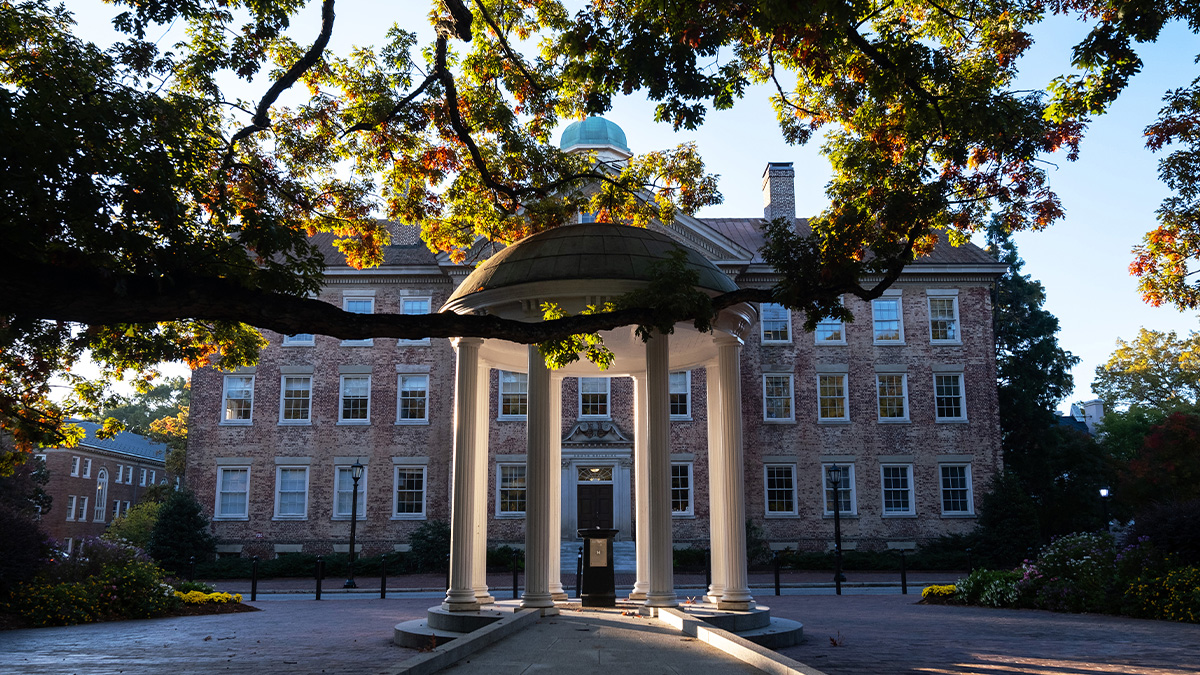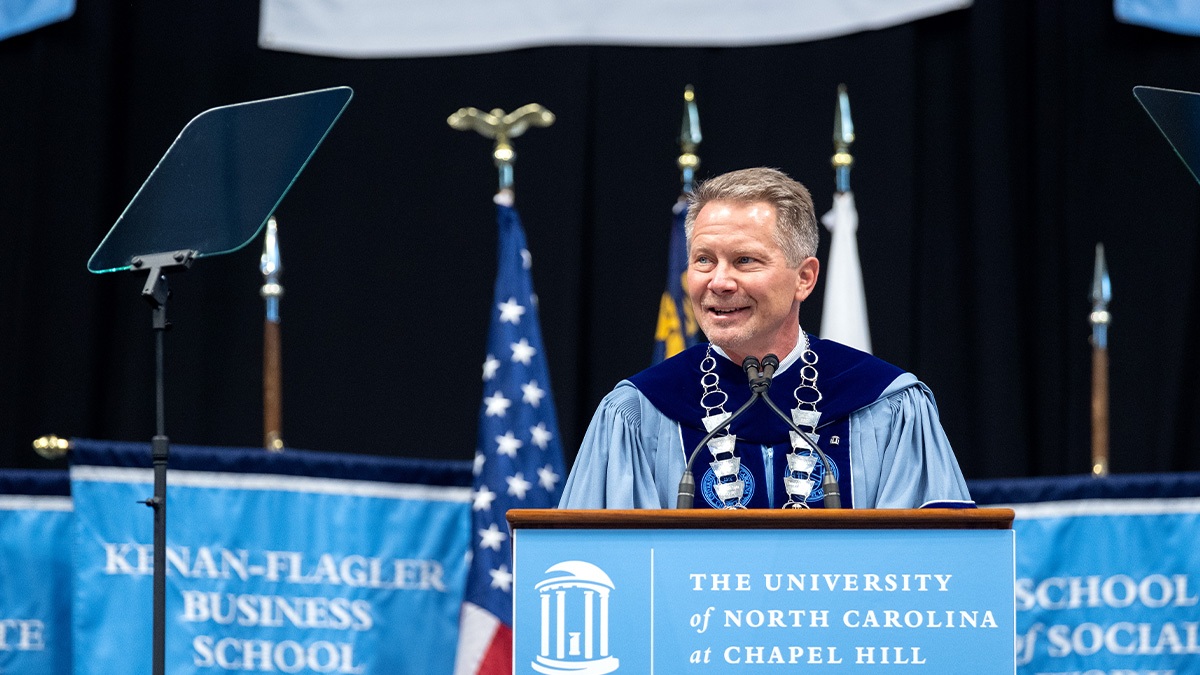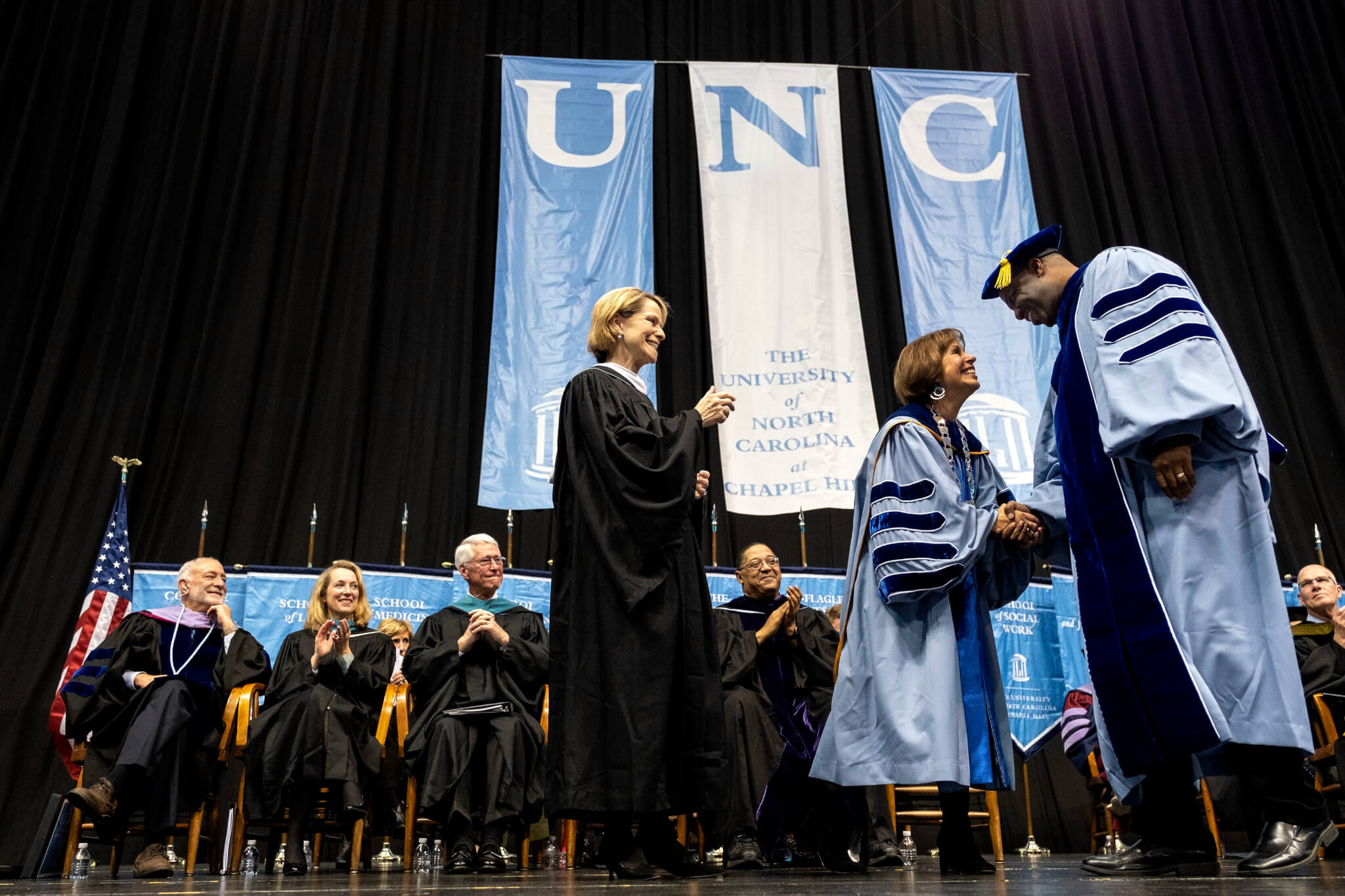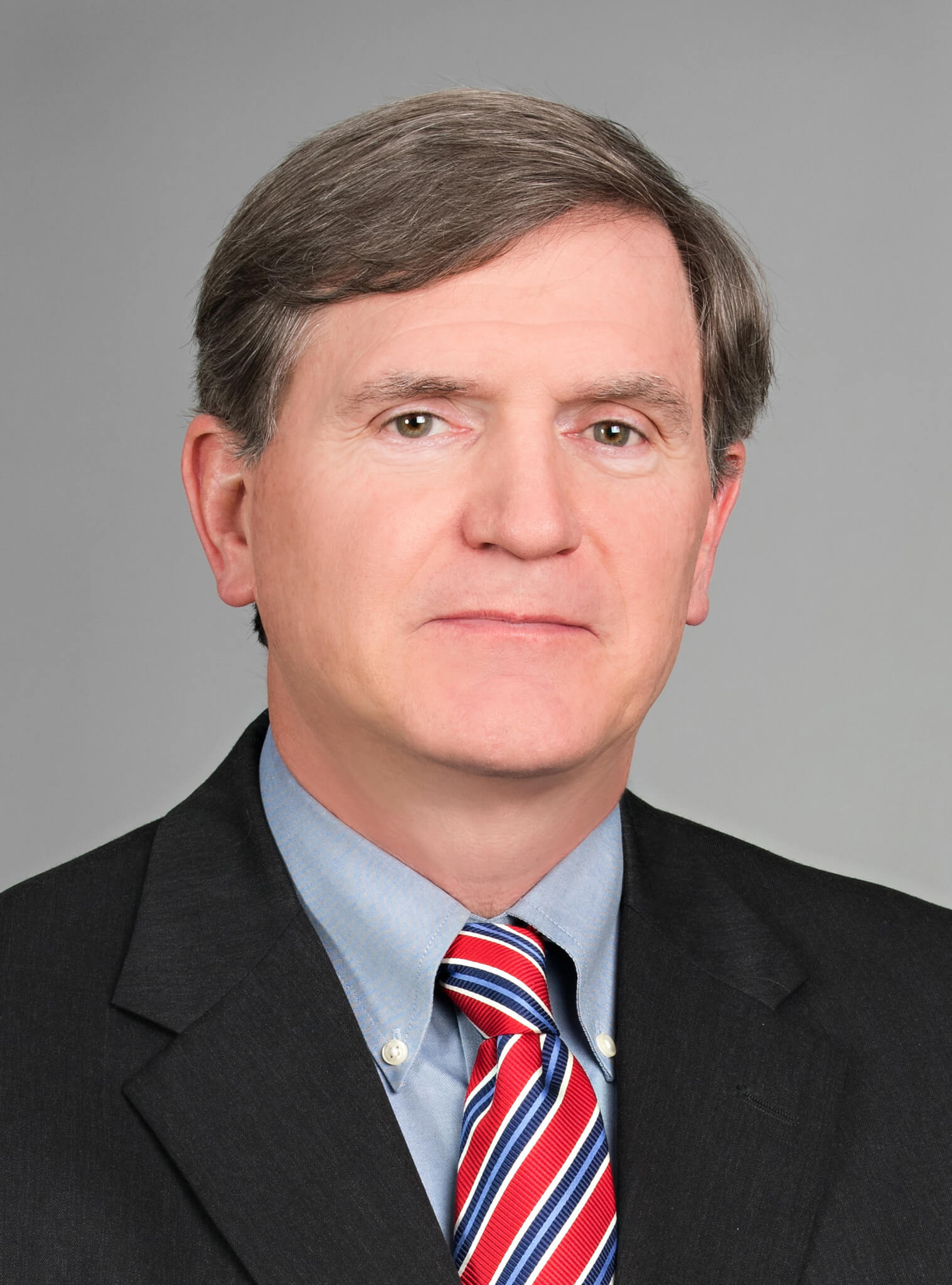Chancellor Folt’s installation address: Carolina Strong – Ever Fresh, Forward and for the People
Chancellor Carol L. Folt's installation address.
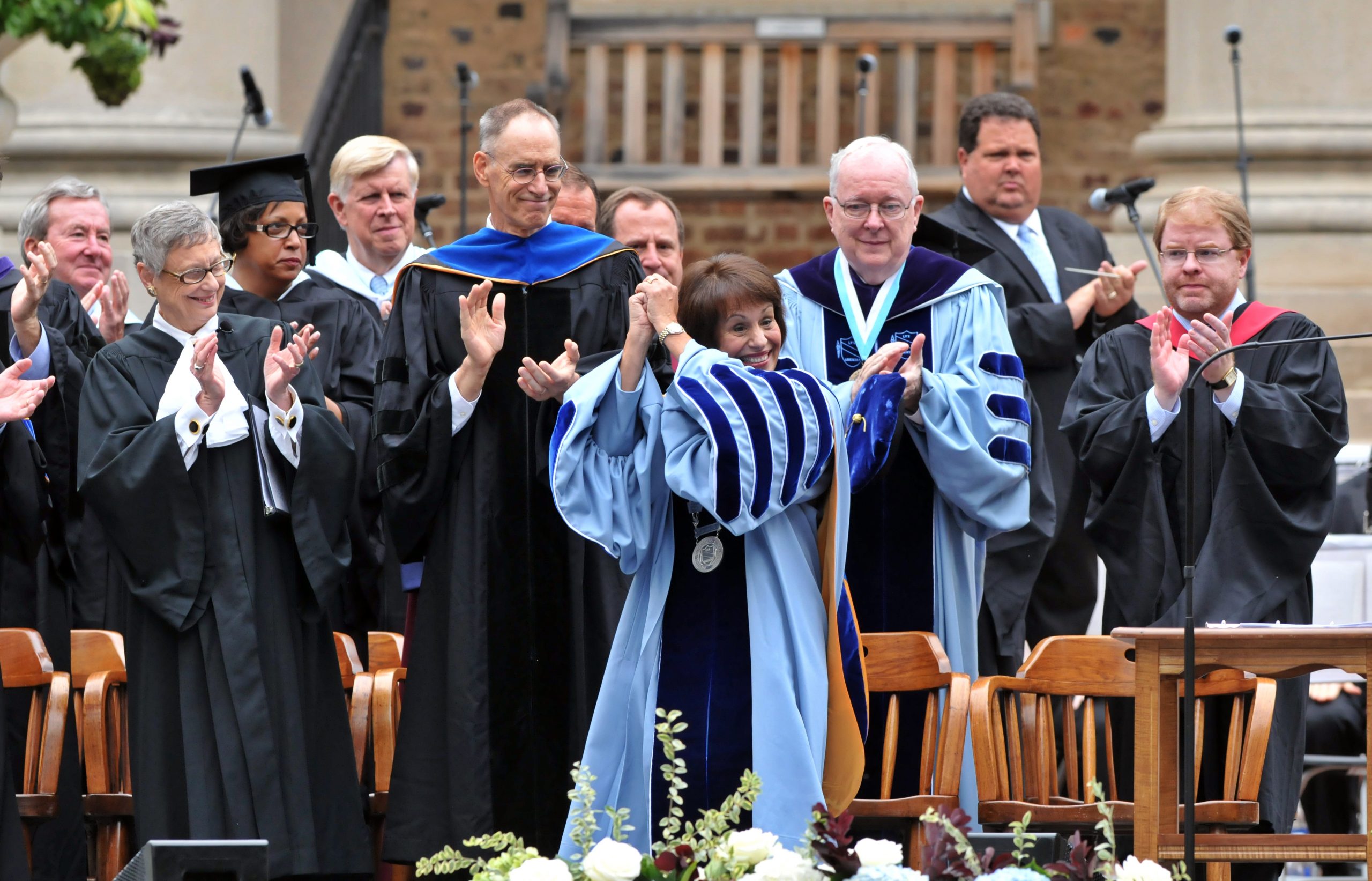
Speech Transcript
Good afternoon everyone.
As I look out into your smiling faces, I am overwhelmed by Carolina warmth and a Tar Heel welcome. Over the last few months so many of you have shared your stories and your heartfelt belief in Carolina, in its potential, its public mission, and you have offered to help in any way.
I thank you. You have given me such a sense of optimism, anticipation, and purpose for the future that we will build together.
I took a walk across campus a couple mornings ago, just after dawn. There were birds, a few solitary walkers, mostly students. It was quiet – a beautiful, walkable campus, a place to reflect, a place to dream. It was probably one of the only times of the day it ever is quiet. Just an hour later the campus wakes up and then it is filled with people going about their business with an energy and a buzz like no other place.
I thought how fortunate am I to be in this special place, working and learning with some of the world’s brightest and most passionate people, on far-reaching questions with people who have a drive to create, to teach, to learn, and to heal. I thought about our students. Every day they are present with us with fresh ideas; ever-changing, growing minds; big, wild dreams. They are our own engines of innovation. And I thought about Carolina’s ties to the birth of our nation – to lux et libertas – enlightenment and liberty. These ties are so profound that they challenge everyone who comes here to a grander purpose.
It is a precious gift to be here. And I am deeply honored to be Carolina’s 11th Chancellor, home of the nation’s first public university with its legacy of excellence and public service.
Recognitions
Governor McCrory: Thank you for those wonderful remarks and for upholding the traditions of public education and also for attending my installation today. You were one of the first people to welcome me to this state and I look forward to many more conversations.
Members of the Board of Governors: Your belief in the value of UNC to this state is critical for our success. We appreciate so much your efforts to continue North Carolina’s more than 200 years of national leadership and educational innovation.
President Ross: You are an inspirational leader and an extraordinary public servant. Thank you for your kind words, wise counsel, and confidence in me.
Chief Justice Parker: It is such a privilege to have an alumna with such a vital leadership role in our state here to administer my oath of office.
Members of the platform party and all my predecessors in the audience: It is a great honor to be in the company of people who have made such a deep and lasting contribution to this wonderful community.
And members of the Carolina Board of Trustees: I am very proud to work alongside such a dedicated and creative team. Your support for Carolina’s traditions of excellence and public service is done with such great purpose and energy.
My friends from Dartmouth: So many of you are here today. I see my first honors student, graduate students, colleagues, friends from administration and the Dartmouth Board of Trustees. I owe Dartmouth so much and I carry you and my Dartmouth family in my heart.
My new Carolina community: Your capacity for changing the world and the future is boundless. I already feel our friendship growing and cannot wait to see what you will accomplish for the world. In the words of a talented Carolina doctoral student, Clare Fieseler, you have given me the Carolina embrace.
And my family and friends: You know how much I love you. Thank you, thank you for supporting me and being here.
The Nation’s First Public University
Today is Carolina’s 220th birthday, counting from the laying of the cornerstone in 1793. There are other historic milestones. In 1789, the same year George Washington was inaugurated, the state passed “An Act” establishing this public university. And in 1795, when the university enrolled its first students, Carolina earned its “creds” as the first public university by becoming the only one to award degrees in the 18th century.
To fully appreciate that history, we need to put ourselves in the mindset of our founders. Carolina was the dream of people who had been fighting, literally, for their lives, for freedom, and for democracy. They were the survivors of a bloody Revolutionary War that took a terrible human toll. They were visionaries. They were fueled with an aspirational fervor at a time of nation-building and renewal. The act of creating the university was introduced, as you know, by William Richardson Davie, who had been an officer in the Revolutionary War and was also a lawyer, a farmer, and a politician.
With their own families and communities torn apart by revolution, our founders were seeking a new beginning. People who had been dealing with death were now leading with hope. And what was one of their top priorities? Build and support a great public university – “to fit each rising generation for an honorable discharge of the duties of life.”
That vision was echoed in another challenging time when Franklin Roosevelt said, “Democracy cannot succeed unless those who express their choice are prepared to choose wisely. The real safeguard of democracy, therefore, is education.”
Carolina’s Charge
As America’s first public university, Carolina became the gold standard. The founders passed the baton, and the future is up to us. How can we fulfill this honorable charge in a way that is ever fresh and relevant?
Like my predecessors and Carolina’s founders, I believe our mission is a noble one:
- to bring light “lux” and understanding to the world; and in doing that,
- to prepare each generation to thrive and have a positive impact in society, and
- to advance all humankind with discoveries and services that help the state and the nation now but also safeguard future prosperity and liberty, “libertas.”
Our place and our time in history provides a context and purpose for our work. To paraphrase the legendary President William Friday, “the problems of the people are the problems of the university.”
To take that charge to heart, we must involve our students in developing solutions for the most pressing contemporary challenges, and develop them to be thinkers and doers.
And we must imagine and prepare them for what they are going to be facing not just today, but 20, 40, 60 years and more into the future. We have to be providing the knowledge, foresight, and wisdom to adapt the emerging knowledge, fields, and technologies for the public good.
The Value of Public Education
That is a big job. And I’ve been asked, “Why do you want to lead a large public research university now, or here?
Well, the answer is simple. Like all of you, I am deeply inspired by Carolina’s history and its higher purpose. I have confidence in our people, and I believe in the capacity of the great public university to help build a just, safe, more prosperous, and sustainable world.
Today – with knowledge and technology exploding, with the socioeconomic and the political landscape changing, and our global relationships also in flux – it is even more important that our great research universities partner to advance knowledge and work with our communities and our businesses to address critical, destabilizing global issues like declining fresh water, food, climate change, poverty, human rights, and disease.
Our public universities must lead in this. We educate the greatest number of students and we do it in the spirit of the public good. Our students, our faculty, and our staff work in local communities and on public projects. The personal ties they establish with the public deepen a bond of appreciation, obligation, and human understanding that they carry throughout their lives.
My connections to the publics are also very personal. My own life opened up when I studied at three great American public universities. My parents, both the first generation to go to college, were chemists, and they valued education. We grew up on a steady diet of Albanian food and reallly cool discoveries. My Dad’s idea of a great field trip was to go to the Ohio State Fair. But we did not get to go on the rides. We visited the pig pavilion. We checked out Ohio’s largest tomato, and we learned what variety of corn had been discovered that year. He also took us to see the computer at BF Goodrich, which took up a floor bigger than my high school gymnasium. He said, “This is the future,” and we believed him. I went to school interested in so many things, but when I discovered my passion for biology, for water, for the life sciences, it was when I found a place where I could create things.
Benjamin Franklin said, “Tell me and I forget. Teach me and I remember. But involve me and I learn.” Involvement, teaching, and learning by doing is thriving here. About 65 percent of our arts and sciences undergraduates conduct research with top faculty and, within a decade of their graduation, 70 percent will attend graduate or professional school.
Our students know what it is like to work side by side with the giants in their fields. These are passionate people making some of the most exciting advances of the day. With this level of involvement, Carolina is expanding the hands on deck to create the discoveries and the social entrepreneurship that will benefit North Carolina and the world, by thousands of additional agile creative minds, each year.
And Carolina is continuing its tradition of re-imagining student learning and what and how we teach. As knowledge grows, there has been a steady progression in the goal and the expanse of the liberal arts – or the liberating arts, as they are called by some. It is moving from providing breadth and depth to ensuring breadth, depth, and practice, with a greater focus on experiential learning and creative practice.
This progression also mirrors the rapid change in the mindset of our faculty from create and teach to create, teach, and apply in all of our disciplines. We have flipped classrooms, new technology, and entrepreneurial, problem-solving and global team projects. They are all part of a new wave that is advancing the art and science of education at Carolina. We are on the cusp of the most significant change in how we think about education in America in a century, and it will make our students even more active and flexible learners and better prepare them for the changing world they are inheriting.
At the same time, our commitment to the broad-based, multi-faceted liberal arts is as strong as ever. Galileo said, “You cannot teach a man anything, you can only help him find it within himself.” Exposing our students to the breadth of human knowledge fosters their own search for enlightenment. Analysis of human values, appreciation of history, social context, philosophical reasoning, and artistic expression opens minds and develops a fuller appreciation of the world in all of its beauty, its tragedy, and its intricacy.
Our future depends on our enlightened, reasoned, critical, and creative thinkers. It is not surprising that as other nations are seeking to improve their own educational systems, adding the liberal arts is viewed by many – in China, India, and elsewhere – as the most effective way to increase the creativity and innovation in their business and technology by their own students and in their countries.
Carolina Today – Carolina Strong
I have had an amazing listening tour across campus and the state, and I certainly will continue that. It has been inspiring, and it has been instructive.
There is such pride in our history; in North Carolina as the most progressive educational leader in the South; in our medical and educational systems; in the Research Triangle; and in the partnerships that link us with NC State, Duke, UNC-Asheville, and the other universities across our system.
Collaboration and change thrive here. Carolina has been a major contributor to the explosion of discoveries in science, technology, and Big Data that are sweeping higher education. We are changing in response to the evolving local and national landscapes. We want to help create more high-end jobs and grow North Carolina’s knowledge-based economy.
We have some of the most outstanding doctors, nurses, public health practitioners, social workers, pharmacists, hospitals, and medical centers in the world, and we want and will continue to provide cutting-edge care across the state.
We want to increase the capacity of students from underserved communities to attend and succeed at our great North Carolina universities. And we really, truly want to develop a financial model to make our aspirations possible, sustainable, and affordable.
What happens here next and, indeed, in all of America’s great publics will have an enormous influence in the nation and in the world. Our universities have been the envy of the world for decades. They have given our nation its greatest competitive advantage and protected our liberty since the birth of our country and the birth of the first public. Our future depends on keeping them strong.
Fresh, Forward and Outward
As Chancellor of this great institution, my mission is to work with you as we chart a forward-looking trajectory for Carolina’s future. After just three months, I still am learning. I am developing a team that combines new and veteran senior leaders, and we are seeking the best ideas and the freshest perspectives. One of our first steps with you will be to carefully evaluate our strengths and ask ourselves how well we are executing in our mission.
We start from a position of great strength:
- Discoveries by our faculty and students touch every aspect of society, advancing human thought and improving health and the well-being of millions of people.
- Our faculty is dedicated to innovation and excellence in their teaching, and our deeply engaged staff are essential and talented partners.
- Our students – undergraduates, graduates, and professionals – are so strong. They are independent and collaborative. They publish. They compose. They start companies. They study around the world. They work in our communities, and they shine on the playing field, in the media, and on the stage.
- But even more, they pride themselves as people who look outward, who care about the world. This is not an inward, all-about-me kind of place. Our students carry Carolina’s tradition of excellence and public service forward in their lives after graduation, as leaders in their professions, their communities, and as loyal, involved and extremely generous members of our community.
- Carolina is also one of the most accessible and affordable universities in America, due to support from the state, alumni, and friends. Our students come from all 100 counties in North Carolina, across the nation, and around the world, and many stay to live and work in North Carolina after graduation. We have been ranked the number one academic value for years, and our student debt is among the lowest in the nation. We soon may be the only public university in America covering full financial need. I am proud of all that.
- We are an indispensable part of the state, providing essential services through hundreds of programs. For example, the Carolina College Advising Corps helps low-income, first-generation students from across North Carolina to find their way to college. Our School of Government trains 12,000 public officials in North Carolina every year. Forty percent of all North Carolina physicians were trained at UNC. And last year alone, UNC-Chapel Hill’s research grants supported more than 10,000 jobs in 89 of our 100 counties, bringing in almost $800 million in financial support for this work.
And as a public institution, we are committed to be holding the highest standards of integrity, transparency, and accountability.
Provost Jim Dean and I have already begun working with so many of you to develop a powerful unifying strategy for Carolina. This strategic thinking and planning is what is going to help us move forward quickly to develop a comprehensive fundraising campaign.
But some things already are clear:
- Carolina began as a fresh idea in a new nation. We need to keep that freshness as we anticipate our future in a time of such rapid change.
- We will continue to develop new ways of doing business, as we already have been doing with Carolina Counts and that we will stretch even further to do in the future.
- We will make choices about the things that we do, and we will find the means to take risks and try some new things. We cannot afford to stand still in a world that is moving so quickly ahead.
- We can lower barriers. Let us de-silo this campus. Let us become more sustainable and let us leverage our cross-cutting connections and our culture of collaboration within and beyond campus.
- We will and already are intensifying our entrepreneurial activities, and they build on the extraordinary progress here and the work launched by my predecessor, Chancellor Thorp.
- We will work across schools to develop a stronger voice and a communications strategy that will help us tell the world about Carolina’s successes, and we are going to continue to work with our UNC system partners to support our strategic plan and to foster new connections.
- And most of all, we will become better listeners. We want to gather input from the people here and around the state to strengthen our relationships and build a shared and powerful future.
A New Sense of Community
I have tried to draw the lines today from Carolina’s wonderful founding principles to the enduring values and our ongoing charge to meet the needs of our current and our future students. Our values endure even as the concept of the people we serve has radically changed. This is the most fundamental difference between then and now.
From a regional university accessible to a few more than 200 years ago, Carolina today is a rich, diverse community. And our diversity – and the melting pot that is North Carolina, and that is America, and the world – is going to grow quickly in the coming years.
Our students have to thrive in diversity. They have to be comfortable in the complex communities and workplaces that are their future. Our own community has to be safe and welcoming. Our learning is enhanced by breadth of opinion, by diversity in identity and experience. These differences must be appreciated. This should be the intention of every great university in America.
We have a proud tradition of Carolina leaders who have worked across differences for the common good and have had a great footprint in this world. The late Julius Chambers was a champion for civil rights. Illustrious basketball coach Dean Smith was another dedicated civil rights advocate, as was Lieutenant General Patricia Dallas Horoho, the 43rd United States Army Surgeon General. She is career military and the first nurse and the first woman to hold this important national position. They can be models to us all.
I believe that Carolina can indeed be the leader in shaping the path for the great public university in America. We can show how you do it – to be the one that preserves excellence and innovation, access and affordability, a deep commitment to the state, and gathers strength to innovate and meet new challenges.
It is the privilege of my life to be here.
Together, we can make history.
